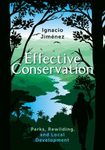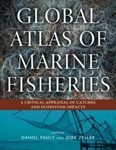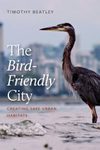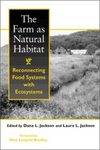By
Leon (NHBS Catalogue Editor)
5 Sep 2018
Written for Hardback

If I asked you to name the most endangered cetacean species, I doubt the vaquita would come to mind. You might mention the baiji, the dolphin living in China’s Yangtze river, but alas, no living members of this species have been seen for years, despite intense search efforts, and the species is presumed extinct. Unfortunately, the vaquita seems to be next in line. Biologist Brooke Bessesen here tells its sad story, revealing the complex world of species conservation.
To understand this story, we need to take stock of two key players. The vaquita is a porpoise, a small marine mammal in the superfamily Delphinoidea or toothed whales. As such, it is a sister-group to dolphins and orcas. It is endemic to the northern part of the Gulf of California, that body of water wedged between mainland Mexico and the Baja California peninsula. Being small, living in turbid water, and both shy and reclusive, it is rarely photographed or filmed and usually seen alone. The vaquita has a bit of PR problem. It wasn’t scientifically described until 1958, and only 60 years later we are about to lose this species forever, their numbers having plummeted from an estimated 600 in 1997, to 60 in 2015 and only an estimated 12 in March 2018. How did it get to this?
Enter key player number two. The vaquita shares its habitat with the totoaba, the largest member of the fish family Scianidae or croakers. Much like sharks are senselessly slaughtered by having their fins cut off for shark fin soup (graphically portrayed in Peschak’s
Sharks & People), totoaba are threatened by poachers who catch these animals and cut out their swim bladder. These bladders are being sold on the black market and smuggled to China where they are boiled into soup with supposed curative powers. Yes, you read that right: soup – you will understand my continued aversion to alternative medicine and other such quackery, which fuels a rich trade in animal body parts (see also Nuwer’s
Poached or Orenstein’s
Ivory, Horn and Blood). And this trade is lucrative, with a single decent-sized bladder fetching the fisherman $1500-$1800, and the end-consumer in China forking out between $10,000-$50,000 for it.
The stories of these two species intersect in the gillnets employed by fishermen to catch totoaba. Consisting of vertical panels of netting, they are left floating in the water column and indiscriminately catch anything. Sharks and rays are ram ventilators (i.e. they need to keep moving to keep water flowing over their gills), whereas turtles and marine mammals regularly need to surface to breathe. Both drown when they end up trapped as by-catch in gillnets.
Bessesen is dumped in right at the deep end of this story – her first encounter with a vaquita is the stainless steel table of a veterinary clinic during a necropsy of a washed up vaquita carcass. Cause of death: entanglement. And the grim tone of the book does not let up from here. Despite legislation in 2013 from the Mexican government to phase out gillnets, an emergency gillnet ban in 2015, and financial incentives to either not fish or use alternative gear that greatly reduces vaquita by-catch, the story on the ground is different. Corruption means that the money goes down the wrong pockets. Bureaucrats are withholding fishing permits for fishermen who actually do care and want to use this alternative gear. Others who accepted the buy-outs and handed in their permits were unsuccessful in their new ventures. Lacking permits, they cannot legally return to fishing and have ended up working for the international crime syndicates who are cashing in on the black market value of the totoaba bladders.
Vaquita is a bleak story, showing humanity at its worst. Many Mexicans, not having seen the shy and reclusive vaquita, openly claim that the species is a myth. Many fishermen would happily see it extinct so they can continue fishing, intimidating and harassing alt-gear fishermen. The government has banned totoaba fishing but allows catching of corvina, a related species, which provides the perfect cover-up to continue illegal totoaba fisheries. Protests by fishermen turn violent. A poacher is killed in a shootout. The fear is palpable in Bessesen’s narrative.
Against this tide of human greed and indifference, Bessesen pitches the proverbial heroes of the story; scientists who are developing acoustic monitoring techniques to estimate population sizes, the volunteers of Sea Shepherd who arrive in the area to actively patrol and clear out abandoned ghost nets. Even Leonardo DiCaprio makes a cameo to sign a memorandum with the Mexican president. At this point in the story, it already feels like too little, much too late, with vaquita population estimates having dropped below 30 individuals.
The last few chapters take on a desperate tone. Bessesen interviews a biologist who is attempting to create a totoaba hatchery programme in a bid to provide a legal supply of swim bladders. A questionable move that did not work for elephants and their ivory tusks. And finally, at the end of 2017, with their backs against the wall, biologists and veterinarians make the controversial decision to try and round up the last remaining vaquita to keep them in captivity, with the hope of reintroducing the species in the future. As documented in my review of
Voices in the Ocean, or in books such as
Beneath the Surface, most cetaceans don’t do well with captivity – at all. Spoiler alert: the few vaquitas that are caught die shortly afterwards, forcing an immediate termination of this initiative.
One side that Bessesen leaves unexplored is that of the consumers in China. If demand for swim bladders disappears, the vaquita might stand a chance. Vanda Felbab-Brown explores this side of the equation in
The Extinction Market and I feel it could very well be here that we need to focus our efforts if we do not want this story to be repeated over and over again.
With so few individuals remaining and no solution at hand, the vaquita is likely doomed to extinction, leaving a clearly distressed Bessesen pondering: what species is next in line?
Vaquita is an incredibly well written, nail-biting story, but also a sad and bleak book without a happy ending. Why recommend such a book? Because, as Bessesen vows at the end, she is not willing to silently stand by and watch another species slip into the abyss of extinction before the human juggernaut. So, to her falls the ungrateful and gut-wrenching task of telling their story.






































